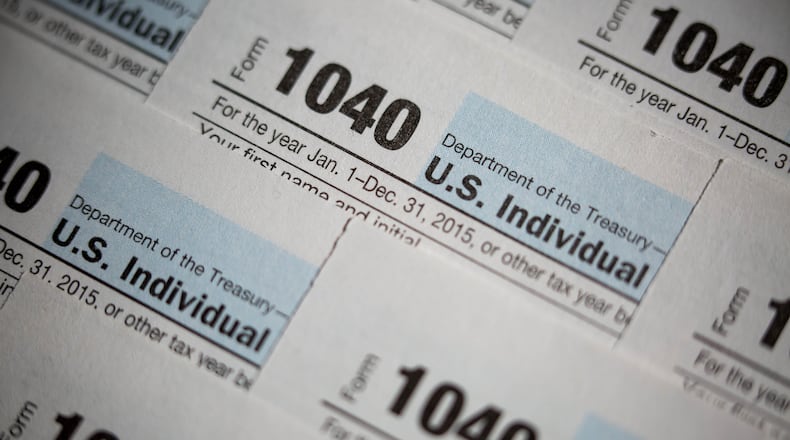Tax Day, April 15, is quickly approaching. Few Americans, except for some nerdy tax fans, enjoy figuring out their taxes. Sitting down with heaps of receipts and a tome of instructions — or trying to make small talk with your accountant to fill the awkward silence as he stares at your W2 — seems like a moderately annoying, but necessary, annual ritual.
Tax filing is about to change, but not for Georgians. The IRS has started a pilot program called Direct File, available in 12 states this year. Direct File allows taxpayers to file their taxes directly with the agency, through a government website, free of charge. For now, Direct File covers a subset of taxpayers, primarily those with only wages and a small amount of interest income. But it is a critical step toward developing a comprehensive electronic filing system for all taxpayers.
Access to Direct File will be a big win for Georgia taxpayers. Most of us file taxes through paid preparers or commercial software such as TurboTax. Paid filing services can get expensive — TurboTax can cost more than $200 — and are especially burdensome on low-income taxpayers. A recent study showed that the median low-income worker spends 7 percent of his or her tax refund on filing taxes. With prices still high, tax refunds help us pay bills and buy groceries: They can make up 12 percent of working parents’ annual income.
This is particularly important because there is a large racial wealth divide in the United States, and Georgia has many households of color. In 2022, for every $100 of wealth held by white households, Black households held only $15. The tax code contains anti-poverty provisions that lessen this divide: The Earned Income Tax Credit (“EITC”) and the recently expanded Child Tax Credit are two prominent examples. But many households do not claim the tax credits to which they are entitled. By one estimate, one in five families does not receive the EITC because it is too hard or expensive to file taxes.
Credit: handout
Credit: handout
Storefront tax preparation companies and online services are exacerbating this crisis. They target low-income communities of color: According to one recent report, tax-preparation chains cluster in areas with the highest shares of low-income and Black and Brown taxpayers. Contrary to popular belief, most paid tax preparers — about 55 percent — are not subject to IRS regulation and often commit intentional and negligent errors on tax returns. These errors have a disproportionate impact on Black taxpayers, who are audited at three times the rate of other taxpayers for claiming the EITC. When available in Georgia, Direct File will help working families maximize the benefits of the tax code and sidestep tactics deployed by the tax-preparation industry.
All this makes it unsurprising that Georgians support Direct File by an overwhelming margin. According to a recent survey, 92 percent of Georgians support — and more than 60 percent strongly support — making available to all a free, government-sponsored tax filing service like Direct File. This support cuts across political, racial and economic lines. Republicans or Democrats, low-income or high-income, all groups indicated at least 90 percent support for Direct File. And more than 80 percent of those surveyed — including those not currently eligible — stated that they are very or somewhat likely to use Direct File if it were offered.
Our income tax system has always relied on voluntary compliance. Today, the average taxpayer spends more than 10 hours preparing yearly tax returns. We all yearn for an easier way to pay our fair share to the costs of government. Direct File is a solid start.
Alex Zhang, an assistant professor of law at Emory’s School of Law, is a tax expert.
About the Author
Keep Reading
The Latest
Featured



